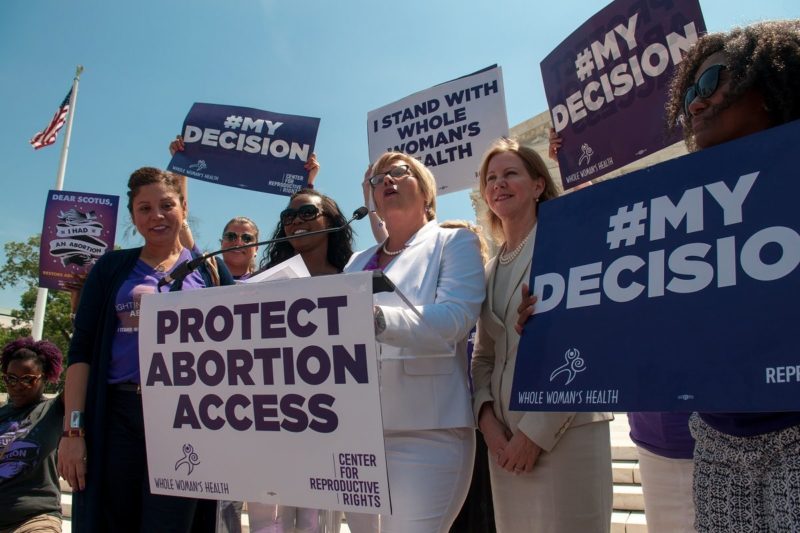Supreme Court Strikes Texas Abortion Restrictions
The U.S. Supreme Court on Monday ruled 5 to 3 that both the admitting privileges and surgical center requirements of Texas' HB 2 are unconstitutional.

Read more of our coverage of Whole Woman’s Health v. Hellerstedt here.
The U.S. Supreme Court on Monday ruled 5 to 3 that two provisions of a Texas anti-abortion law—both the admitting privileges and surgical center requirements—are unconstitutional.
Writing for the majority, Justice Stephen Breyer wrote both provisions “place a substantial obstacle in the path of women seeking a previability abortion,” and “constitute an undue burden on abortion access.”
“We add that, when directly asked at oral argument whether Texas knew of a single instance in which the new requirement would have helped even one woman obtain better treatment, Texas admitted that there was no evidence in the record of such a case,” Breyer wrote.
The decision came on the last decision day of the Roberts Court’s term in one of the most closely watched cases of the year.
Before the Roberts Court were two provisions of Texas’ HB 2, the omnibus anti-abortion bill that has been the sustained focus of legal challenges since 2013. One provision required an abortion clinic to be outfitted with the same physical and professional requirements as stand-alone surgical centers—even if the clinic provides medical, rather than surgical, abortions. That provision has been blocked from being enforced in Texas, due to an earlier temporary Supreme Court order.
The second provision before the Court required any doctor performing abortions in clinics in the state to have admitting privileges at a hospital within 30 miles of the clinic. That part of the law has been in effect in most of the state, after extensive previous litigation.
As reported earlier by Rewire, before the implementation of HB 2, there were approximately 41 facilities providing abortion services in the state, and at least 16 of those facilities had either closed or stopped providing abortion services by the end of 2013, once much of the law took effect. Had the Roberts Court ruled against abortion rights advocates, Texas could have been left with only nine clinics serving patients in the entire state.
“Today, the Supreme Court affirmed what we at Whole Woman’s Health have known all along—that every woman, no matter where she lives, deserves access to compassionate, respectful, and comprehensive care from a clinic she trusts. Today justice was served,” said Amy Hagstrom Miller, president and CEO of Whole Woman’s Health and lead plaintiff in the case, in a statement immediately following the decision.
HB 2 also includes restrictions on medication abortions and a 20-week ban. Those provisions are in effect and not a part of this litigation.
